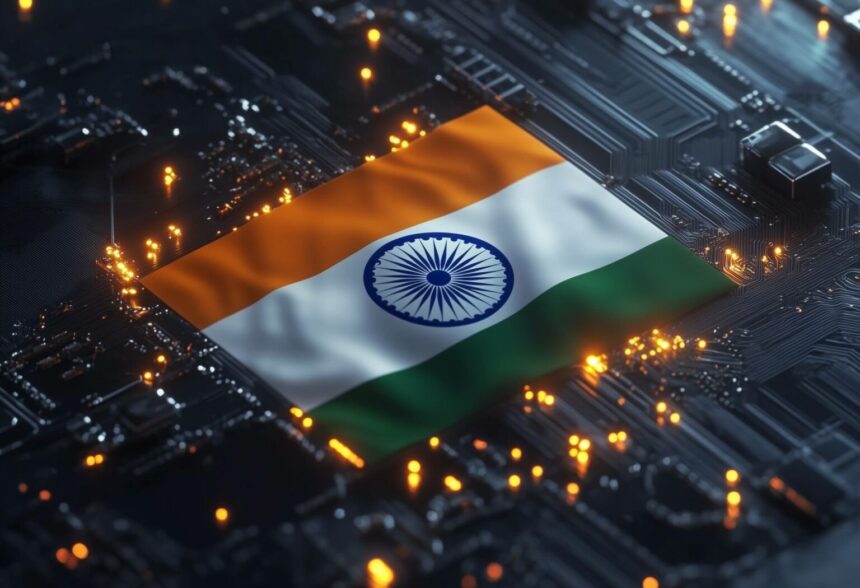Introduction: A Nation at the Edge of a Quantum Leap
Now imagine a computer that would be so powerful that would be able to simulate the movement of atoms, crack the hardest encryption cipher and shift the process of drug discovery in a few minutes and not in years. This is the potential of quantum computing, a technology that is so novel and game-changing that it caught the eye of research labs and huge tech companies, not to mention military organizations and policy makers. When the world is in the rush globally to the next big frontier in computer science, one question stands out loudly in India: is India dreaming about a quantum tomorrow, or is it not possible that we may be much closer than we realize?
Being a country with a long history of science and mathematics, thanks to Aryabhata to C.V. Raman and the like, quantum computing is not just a technological endeavour. It is one of the signs of sovereignty in the 21st -century tech order. However, to realize that dream, nothing is enough other than ambition. It involves planning, long term investment and blending of university, industry and state power. India is in that most crucial point of aspiration and awakening by 2025.
What is Quantum Computing, and Why Does It Matter?
Quantum computing is a field of study that is carried out within the bounds of quantum mechanics, and it uses qubits (quantum bits) rather than classical bits. Unlike classical bits, a qubit can be put in a superposition of states, hence can handle exponentially more information. Throw in the notion of entanglement, with qubits being able to temporarily affect one another even at distances separated, and you have a potentially more powerful machine at best than anything we have ever seen.

The following areas of sectors have a possibility of being affected by quantum computing:
- Pharmaceuticals: Molecular modelling and synthesis of drug development through simulating in molecules interaction.
- Crypto: The decryption of codes: or the quantum secure encryption.
- Logistics and Manufacturing: Volumes go Large
- A.I: Artificial Intelligence: Fast Tracks for Machine Learning Algorithms.
In short, it is not just another new technology but a fundamental technology. The frontier of quantum computing might, indeed, win the technological fate of the 21st century.
India’s Journey So Far: Seeds of Promise
India entered into tryst with quantum computing in a more serious manner in the 2010s with scattered research attempts at IITs and Indian Institute of Science (IISc). But, it was not institutionalised until the government launched the National Mission on Quantum Technologies & Applications (NM-QTA) in 2020 that has been allocated INR 8,000 crore (~$1 billion).
The mission was supposed to be differentials in terms of:
- Quantum communications networks
- Quantum key distribution by satellite
- Quantum sensors and materials.
- Quantum computers
Quantum computers are models of computers built on principles of quantum mechanics as opposed to the use of classical physics in building classical computers.
Many of the advances have been made by the top academic organizations, such as IISc, TIFR, IIT Madras, and the Harish-Chandra Research Institute, which have played a major role in driving both the theoretical and experimental frontiers.
In 2022, C-DAC (Centre for Development of Advanced Computing) created the first indigenous quantum simulator of India. Although it was still primitive in the world context it was a pivotal point.
There are also private players. Tata Consultancy Services (TCS), Infosys, and Tech Mahindra have already established R&D alliances with foreign-based quantum technology firms and are even grooming talent in quantum programming languages such as Qiskit and Cirq.
There has been no fleshing out of the highway at all.
Where the World Stands: India in Context
It is crucial to look at the global quantum ecosystem in order to determine the developments of India:
IBM, Google and Rigetti are examples of those who made a breakthrough in the US. The present target of IBM Quantum Roadmap is to realize 1,000-qubit machines by 2026.
- China: Claims quantum supremacy with Jiuzhang 2.0. Beijing invested $10 billion into its national quantum lab.
- Europe: Germany and France have committed over €2 billion each for quantum research.
- Israel and Japan: Smaller nations making disproportionate gains through focused investments and defense partnerships.
On the contrary, Indian synergy in budget and public-private is small. As much as we are yet to drop out, we are not also ahead in the race. This is not a difference of smarts and motivation but size and speed.
Barriers Holding India Back: A Ground Reality Check
Nevertheless, there are issues that hinder the Indian quantum visions even in the presence of goodwill:
- Shortage of Talent: Quantum computing is a field that attracts and utilises several talents in the areas of physics, mathematics, computer science and engineering. There is a lack of critical mass in India today in this regard.
- Infra-Structure Gaps: To get up and run, quantum computers require a vast amount of resources in the shape of a cryogenic plant, the superconducting materials, and error correction units.
- Weak Industry Link: Most of the activities are quantum-focused from an academic perspective. There are no thriving commercial pilots or startup ecosystems, which makes the rate of innovations slow.
- International Depending: India still depends on quantum mini-computers that are outsourced and also the software stacks that are quantum in nature. The age of native quantum processor is a very blossoming time.
- Bureaucratic Barriers: Pro-research Budgets replace and slow down the process.
Nevertheless, none of these difficulties is impossible to overcome. However, they need to be fought.
The Emotional Pulse: Why Quantum Computing Resonates in India
In addition to science, quantum computing touches upon the shared imagination of India. The psychological resonance of achieving a feat in such an exotic field as quantum computing is about as profound as overcoming technological interdependence which has been a bane of a postcolonial society.
The question of young Indian scientists on short term posting in foreign labs is; “Why cannot this be done in India?” Entrepreneurs wonder why Indian startups can hardly get grants whereas their U.S counterparts can get millions of seed capital. It is a need. It pricks itself in pride. And then on top of it, potential is waiting to be unlocked.
This is a huge emotional reason. It is a movie plot. It creates an eco system. It does not even diminish the necessity of greatness even during difficult times.
Green Shoots: Momentum in 2025
The growth of some of the green shoots is predicted to be found by the mid-2025:

press briefing
- The IIT Madras and the IBM India are working on a 50-qubit simulator.
- Bengaluru-based Startup QpiAI Tech is developing the first quantum-as-a-service platform in India.
- MeitY (Ministry of Electronics and Information Technology) is initiating a national program of quantum engineers with an objective of a national fellowship program.
- India has also signed a quantum cooperation with Australia and EU in concerted R&D and standard setting.
Such trends might not stir headlines across the globe but this marks the fact that India is slowly finding her niche.
The Road Ahead: Can India Leap or Will It Lag?
That is something India has to decide. It can either be a latecomer to the quantum revolution or can place big and synchronized bets to become competitive. Things to go by:
- An Installation of a National Quantum Grid: interconnect the laboratories, universities, and industries onto the same common shared digital infrastructure.
- Open Quantum Startup Incubators: As new firms, they can be supplied with funds, expertise and laboratory facilities.
- Invest in Hardware Sovereignty: National-level focus on the indigenous production of quantum chips will have to be made a national priority.
- Massive Upskilling: Apply the quantum principles to engineering and sciences degree courses at colleges and universities.
- Government Procurement Of Quantum Solutions: The need will promote the availability of quantum solutions and prove their uses-cases.
From Dream to Determination
In fact, will quantum computing become a reality in India or will it remain a dream? The answer lies somewhere in between. The State Assets are at hand and the plan is becoming very feasible. The fantasies are the dreams with no directions though.
India has the mind power, the past and the desire. What is required is consistency. Now that quantum technology is moving out of labs and into board rooms, it is important that as a nation we are not spectators but part of the construction process.
The reason is that maybe the problem, in this new age of computing, is being second best. India has to strive to take the lead.
And having the means to, it does not add its sums as quickly. It will re-establish what scientific superpower is in the post-digital world.
The Vue Times is a journal that can be subscribed to in order to receive quality coverage of the latest update news and general awareness news from India or World.










